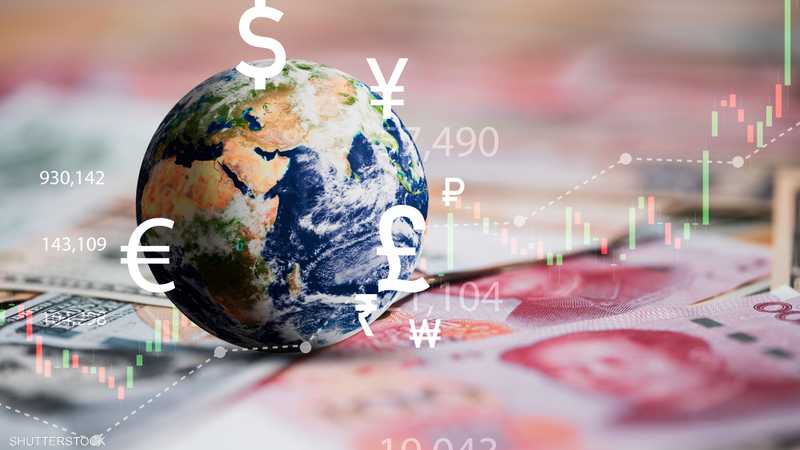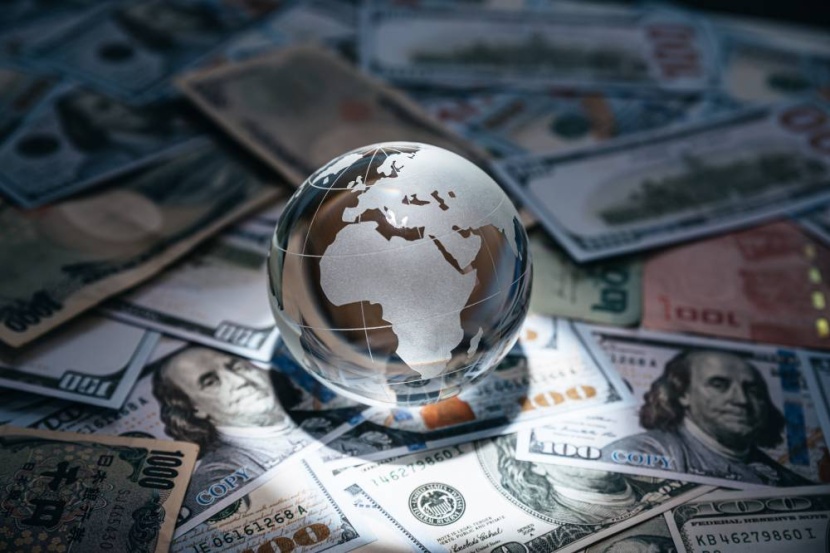-Introduction:
The global economy is considered a dynamic system influenced by a series of economic shifts happening worldwide. These shifts have a significant impact on currency values, as the evaluation of currencies becomes linked to various economic and political factors. In this article, we will examine some of these shifts and how they affect the currency market.
- GDP Growth:
The growth of a country's GDP is a key factor in determining the value of its currency. When there is strong economic growth, the demand for the local currency increases, leading to an appreciation in its value. Conversely, during economic slowdowns, the value of the currency may decline.
- Inflation Rates:
Inflation rates play a crucial role in determining currency value. Low inflation strengthens a currency, as the money retains its value over time. On the other hand, high inflation leads to a loss of purchasing power, which contributes to a decrease in the currency's value.
- Interest Rates:
Central banks set interest rates as a tool to control economic growth and inflation levels. Higher interest rates make the currency more attractive to investors, which leads to an increase in its value. Conversely, lower interest rates can result in the weakening of the currency.
- Political and Economic Factors:
Political and economic events and developments around the world can also impact currency values. For example, trade wars, political tensions, and economic crises represent challenges that affect the stability of currencies.
- Trade Relations:
Currencies are also influenced by trade relations between countries. Signing trade agreements or experiencing trade tensions can directly affect the value of currencies
-Global Economic Shifts and Their Impact on the Currency Market:
The impact of global economic shifts on the currency market lies in shaping new conditions and evolving dynamics in this vital market. Economic transformations present both challenges and opportunities that affect the performance of global currencies. With the advancement of globalization and technology, the currency market is affected by rapid structural changes. The speed of global economic shifts accelerates in determining currency trends and their values. Currencies receive direct impacts from economic fluctuations, as changes in growth, inflation, and interest rates can affect the strength or weakness of currencies.
For example, countries engaging in economic stimulus policies or adopting specific monetary policies can lead to changes in currency valuations. Additionally, strong economic growth in a country can strengthen its currency. On the other hand, economic shifts may create challenges, such as volatility caused by global financial crises or escalating trade tensions. Understanding the factors that influence the currency market and analyzing them becomes crucial for traders and investors seeking sustained success in this dynamic environment.
In this context, it is clear that global economic shifts have a direct and tangible impact on the currency market, and participants in this market must be cautious and prepared to adjust their strategies and make informed decisions in response to rapid changes and potential challenges

-Global Economic Shifts and Their Impact on Individuals and Businesses:
The world is undergoing continuous economic transformations that significantly affect individuals and businesses. These economic shifts cause changes in global economic and financial conditions, influencing economic growth, job opportunities, and the sustainability of businesses. Below, we take a look at some major global economic shifts and their impacts on individuals and businesses.
- Economic Globalization:
Economic globalization refers to the increasing economic integration and interaction between countries. This is achieved through increased international trade, capital flows, and foreign direct investment. Economic globalization leads to more business opportunities and the exchange of technology and knowledge. As a result, companies can access new markets and foster growth, providing additional job opportunities for individuals. However, economic globalization can also lead to challenges, such as intense competition and low employment in some traditional sectors.
- The Fourth Industrial Revolution:
The Fourth Industrial Revolution is characterized by rapid technological advancement in areas such as artificial intelligence, robotics, the Internet of Things, and blockchain technology. This global economic shift has a broad impact on individuals and businesses. Modern technology contributes to increased productivity and improved company operations, leading to better quality and reduced costs. At the same time, technological advancements may change job roles and required skills, requiring individuals to acquire new skills and adapt to technological changes.
- Financial Globalization:
Financial globalization refers to the increasing interaction and financial trading across national borders. Individuals and businesses can access global financial markets and invest in a wide range of assets and securities. This shift impacts individuals and businesses in several ways. Individuals can benefit from global investment opportunities and diversify their investment portfolios. For businesses, they can access international financing to fund their projects and expand into new markets. However, financial globalization may also increase financial market volatility, exposing businesses and individuals to greater financial risks.
- Environmental Changes and Sustainability:
Global economic shifts pose significant challenges in the fields of environment and sustainability. There is growing concern about climate change and environmental protection, and businesses and individuals must take steps to reduce negative environmental impacts. These actions may include adopting sustainable business practices, using clean technologies, and raising awareness about the importance of environmental conservation. Moreover, global economic shifts may present new opportunities in renewable energy and environmental technologies, leading to the growth of new sectors and providing sustainable job opportunities.
- Social and Demographic Changes:
Global economic shifts also influence social and demographic changes. Population structures and the geographic distribution of the workforce are evolving, leading to new challenges and opportunities in the labor market. Individuals may experience shifts in demand for certain skills and jobs, requiring them to adapt and acquire new skills to meet the changing demands of the labor market. For businesses, social and demographic changes can affect market targeting and consumer trends, necessitating that companies analyze these shifts and adjust their strategies, products, and services accordingly.
-Impact of Currency Prices on International Trade:
Currency prices significantly affect international trade, influencing exports and imports. When the value of the local currency rises, the cost of exports increases and the cost of imports decreases. On the other hand, a decrease in the currency's value reduces the cost of exports and raises the cost of imports. This impact plays a crucial role in trade balance and the competitiveness of companies.
- Impact on Exports:
When the value of the local currency rises against foreign currencies, the cost of exported goods and services increases, making them less competitive in global markets. This leads to a decline in demand for exports and can negatively affect the economy and exporting companies. For example, if the euro rises against the US dollar, it becomes more expensive for US importers to buy European goods.
- Impact on Imports:
On the other hand, a rise in the value of the local currency decreases the cost of imported goods and services from abroad. This increases demand for imports and can boost the economy in the short term. However, an increase in demand for imports may exacerbate the trade deficit and harm the economy in the long term.
- Impact on Trade Balance:
Currency fluctuations directly impact the trade balance between countries. A rise in the value of the local currency can deteriorate the trade balance by reducing exports and increasing imports. While a decrease in the value of the local currency can improve the trade balance by boosting exports and reducing imports.

-Currency Stability is More Important than Strength:
When it comes to stability, governments and monetary policymakers often prioritize the stability of their currencies over making them strong. A strong currency makes a country's exports more expensive, which harms its trade competitiveness. On the other hand, a weak currency makes imports more costly, leading to higher domestic inflation. Therefore, the ideal approach is to aim for a middle ground and avoid destabilizing fluctuations

-Currency Strength:
Human history is marked by the competition for valuable resources among nations through trade agreements, political treaties, and even tough wars. In the present day, there is fierce competition between countries for resources, with each country leveraging the strength of its local economy. This local strength determines the value of each currency in the global trade market. Therefore, the strength of currencies plays a fundamental role in each nation's dominance in the global economy and international politics

-Conclusion:
Global economic transformations are among the most significant factors affecting currency values. The global economy is characterized by continuous dynamics and rapid changes, with numerous factors playing a role in these transformations. One of the key factors is the economic growth of countries. When a country experiences strong economic growth, the demand for its currency increases, leading to an appreciation of its value. Conversely, during periods of economic slowdown, demand for the currency may decrease, resulting in a decline in its value









